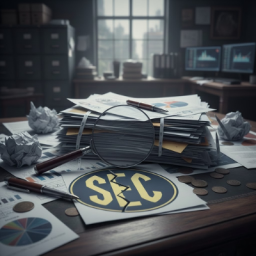
Walmart has issued multiple recalls in September 2025 covering a surprising range of products: cheese, shrimp, salads, ice cream, and even moisturizers. These recalls highlight how quickly a product issue can escalate into a nationwide safety concern. For consumers, the risks range from listeria infections and allergic reactions to bacterial contamination and even radioactive exposure. For companies, the consequences are just as serious, including lawsuits, regulatory penalties, and long-lasting brand damage.
At Juris Law Group, we advise food, beverage, and consumer product companies on how to prevent recalls and how to respond when one occurs. Below, we break down the details of these Walmart recalls, what consumers should do if they suspect their product was recalled, and what companies need to know if their brand is suddenly on the FDA’s recall list.
Which Products Did Walmart Recall in September 2025?
The recent recalls involve multiple manufacturers, each tied to specific safety issues:
- Middlefield Original Cheese Co-op (September 14, 2025): Seven cheese varieties recalled due to Listeria monocytogenes.
- Aquastar (USA) Corp. Shrimp (September 13, 2025): Sixteen ounce cocktail shrimp recalled for cesium 137 contamination.
- Taylor Fresh Foods Honey Balsamic Salad Kit (September 12, 2025): Mislabeling caused undeclared sesame and soy allergens.
- Blue Bell Moo-llennium Crunch Ice Cream (September 10, 2025): Mispackaging exposed consumers to undeclared nuts.
- DermaRite Industries (September 9, 2025): Moisturizers, deodorants, and sanitizers recalled for Burkholderia cepacia contamination.
FDA Recall Notices: Where Can I Check the Official List?
Here’s a summary table with official FDA recall notices where available:
| Product | Company | Recall Date | Cause | FDA Notice |
| Multiple Cheese Varieties (Organic Gouda, Cheddar, Swiss, etc.) | Middlefield Original Cheese Co-op | Sept. 14, 2025 | Listeria monocytogenes contamination | FDA Recall Notice |
| Cocktail Shrimp (16 oz, imported from Indonesia) | Aquastar (USA) Corp. | Sept. 13, 2025 | Cesium 137 contamination | FDA Recall Notice |
| Honey Balsamic Salad Kit | Taylor Fresh Foods | Sept. 12, 2025 | Undeclared allergens (sesame, soy) | FDA recall page not yet available |
| Moo-llennium Crunch Ice Cream | Blue Bell Creameries | Sept. 10, 2025 | Undeclared nuts (almonds, walnuts, pecans) | FDA recall page not yet available |
| Moisturizers, Deodorants, Sanitizers | DermaRite Industries | Sept. 9, 2025 | Burkholderia cepacia contamination | FDA Recall Notice |
How Do I Know If My Walmart Product Has Been Recalled?
If you purchased cheese, shrimp, salads, ice cream, or moisturizers from Walmart recently, follow these steps:
- Check the packaging carefully: Look for product names, lot numbers, UPC codes, and expiration or best-by dates. These identifiers are typically near the barcode or stamped on the package.
- Compare with FDA recall details: Cross-check with the FDA recall notice or Walmart’s recall announcements.
- Stop using the product immediately: Even if you’re unsure, do not take risks. Discard the food or seal personal care items in a bag before disposal.
- Return for a refund: Walmart generally accepts recalled products for full refunds. Bring the packaging if possible.
- Monitor your health: Seek medical help if you develop symptoms such as fever, stomach illness, allergic reactions, or infection after using a recalled product. Inform your doctor about the recall.
You can also search our Recall Tracker for the latest FDA and retailer recall updates.
What Happens If I Ate or Used a Recalled Product?
- Listeria exposure (cheese): Can cause fever, nausea, miscarriages, and severe illness in older adults. Medical attention is critical if symptoms appear.
- Cesium 137 exposure (shrimp): Long-term radiation exposure increases cancer risk. Contact your physician if you consumed the product.
- Allergens (salads and ice cream): Sesame, soy, and nuts can trigger life-threatening allergic reactions. Use epinephrine if prescribed and seek emergency care.
- Burkholderia cepacia (moisturizers): May cause serious respiratory infections in people with compromised immune systems. Stop use and seek care if symptoms develop.
What Should a Company Do If the FDA Recalls Its Product?
When a recall strikes, companies often search for urgent answers like “How to handle an FDA recall” or “What are FDA recall requirements?” Here’s the legal roadmap:
- Immediate notification: The FDA requires prompt reporting. Delayed disclosure can increase liability and lead to enforcement actions.
- Class of recall matters:
- Class I: Dangerous or life-threatening (most Walmart recalls fall here).
- Class II: Temporary or reversible health problems.
- Class III: Violations unlikely to cause harm but still unlawful.
- Work with regulators: Companies must coordinate directly with the FDA, providing distribution data, corrective action plans, and communication strategies.
- Retailer obligations: Large retailers like Walmart require suppliers to carry recall insurance and indemnify them for losses. Companies without strong supplier contracts often face disproportionate costs.
- Litigation exposure: Recalls often trigger class actions or shareholder lawsuits. Legal teams must prepare for claims involving negligence, breach of warranty, or product liability.
- Rebuilding trust: Recovery depends on transparency and corrective measures. Blue Bell, for example, only regained its market after extensive reforms following its earlier listeria crisis.
What Legal Risks Do Companies Face During a Recall?
- FDA enforcement: Recalls can trigger inspections, warning letters, import bans, or even consent decrees that put companies under federal supervision.
- Civil liability: Injured consumers may file lawsuits alleging negligence, mislabeling, or failure to warn.
- Contractual disputes: Suppliers and retailers often dispute who bears the recall costs, particularly when contamination originates overseas.
- Insurance complications: Not all recall events are covered under standard policies. Specialized product recall insurance is often necessary.
At Juris Law Group, we assist companies in assessing liability, negotiating with suppliers, and implementing compliance programs that stand up to FDA scrutiny.
Can a Company Prevent Recalls in the Future?
While not all recalls can be avoided, companies can drastically reduce risks by:
- Conducting rigorous supplier audits and testing imported goods.
- Implementing allergen-control programs to prevent cross-contamination and mislabeling.
- Maintaining environmental monitoring programs for pathogens like listeria.
- Drafting robust manufacturing and distribution contracts with clear recall responsibilities.
- Training staff and developing recall response plans before an issue arises.
FAQs
How Do I Check Lot Numbers or Expiration Dates on Walmart Products?
These are usually printed near the barcode, nutritional panel, or package seal. Cross-check them with the FDA recall notice.
Which States Are Affected by the Walmart Recalls?
Because Walmart distributes nationwide, most recalls cover multiple states or the entire country. Always confirm with FDA recall announcements.
What Should a Company Do If It Faces a Class I Recall?
Notify the FDA immediately, activate your recall plan, and work with legal counsel to limit liability. Class I recalls carry the highest risks for lawsuits and enforcement.
Can a Company Recover From a Major Recall?
Yes. Recovery requires transparency, corrective action, and compliance reforms. Many companies, such as Blue Bell, have rebuilt consumer trust by demonstrating serious operational changes.
Juris Law Group’s Perspective
As a law firm with deep experience in food and consumer product compliance, Juris Law Group has guided clients through every stage of recalls, from FDA communications to class action defense. Our attorneys have negotiated with regulators, strengthened supply chain agreements, and developed compliance frameworks that reduce the risk of repeat violations.
For startups and established brands alike, these Walmart recalls send a clear message: proactive compliance is not optional, it is essential for survival in the consumer marketplace.















